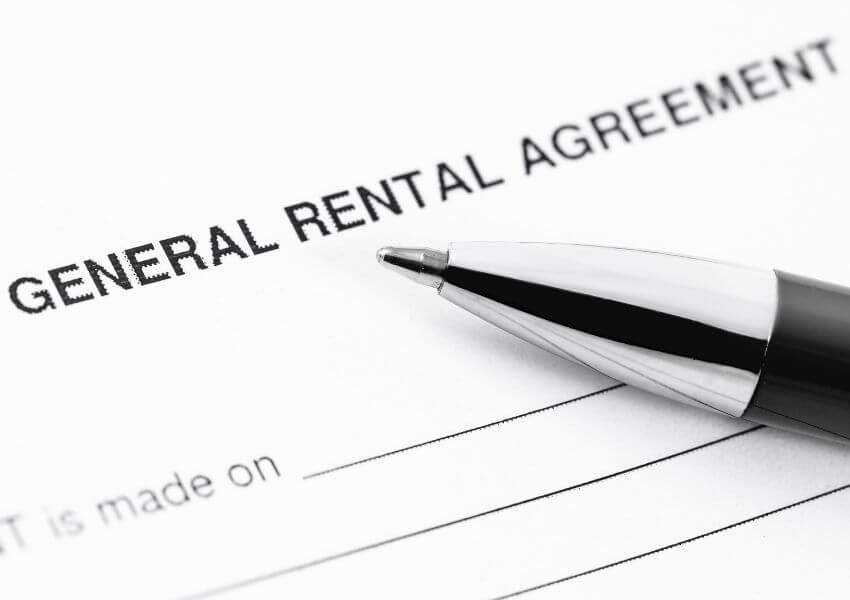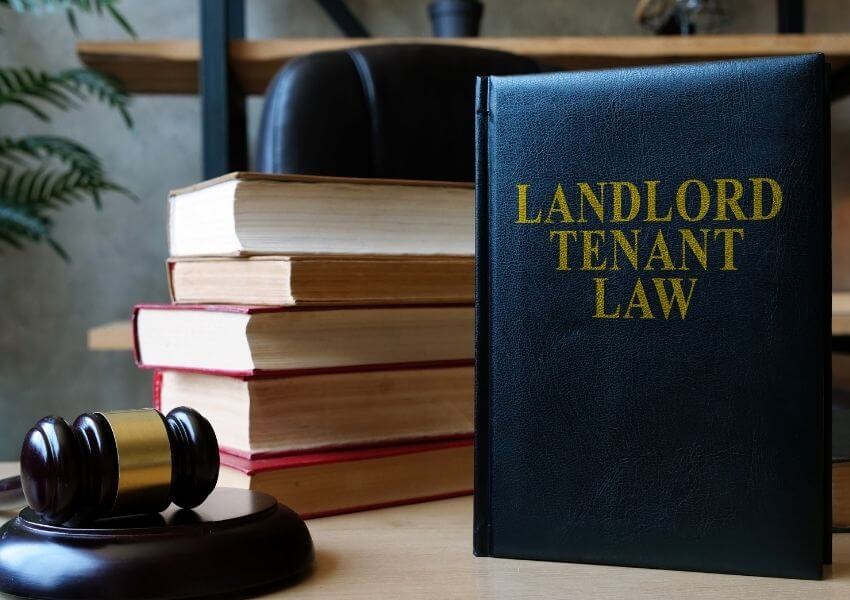In Georgia, the relationships between landlords and tenants is established either orally, in written leases, or when it’s simply implied. After the establishment of the relationship, both parties – the landlords and tenants – obtain certain legal rights and obligations under Georgia laws.
Both landlords and tenants must abide by these requirements for the entire duration of the lease agreement under Georgia law. Dealing with bounced check fees or an eviction process can be difficult, but it's key to follow the letter of the law.
In this blog, we’ll provide you with a basic overview of the key elements under landlord-tenant laws.
Required Landlord Disclosures in Georgia

Georgia laws require that property owners provide their tenants with certain disclosures before they agree to rent the property. Most landlords will easily provide this list to tenants, if they do not the tenant can pursue legal action in the form of a lawsuit. This list of legal information for disclosure under the Georgia landlord-tenant laws include:
- Lead-based paint. This is a federal requirement for houses built before 1978. Landlords must give their tenants notice of concentrations of lead paint used.
- Authorized authorities. Landlords have the responsibility of giving notice to their tenants about the names and locations of the landlord or manager.
- Flooding risk. As a landlord, you must give your renters notice of any flooding that's occurred in the rental property three or four times in the past 5 years.
- Move-in checklist. This isn't exactly a disclosure, but it's mandatory to provide your renter with a move-in inspection checklist. You must have your tenant sign and agree to the condition of the property and its amenities if you charge security deposits.
Please note that a Georgia landlord must provide all these disclosures, specific informations, and each required notice prior to the renter moving in and before they sign the rental agreement. If you don’t make these disclosures before your tenant can sign the lease agreement, not only would this cause a dispute, but your tenant may have a legal right to terminate their lease agreement without further accountability. This would cause additional cost to the landlord.
Tenant Rights & Responsibilities in Georgia
There are certain tenant rights and responsibilities that all landlords must respect. Some basic tenant rights include:
- Be treated fairly by their landlord in accordance with the Fair Housing Act.
- A judicial eviction process as outlined in the Georgia Landlord-Tenant Act.
- Be notified about any changes to the terms of the rental agreement.
- Be notified prior to any landlord entry.
- A proper written notice after the landlord receives their security deposit.
- A walk-through inspection prior to moving out.
- Live in peace and quiet as per the Implied Covenant of Quiet Enjoyment.
- Live in a habitable rental unit.
- Have repairs done to the rental unit within a reasonable amount of time.
When it comes to Georgia tenant obligations, these include:
- Make rent payments on time as per the lease, and paying any fees if the rent is late. Bounced check fees must be paid in-full and as soon as possible under Georgia laws.
- Notifying the landlord when maintenance issues come up or repairs are needed.
- Notifying the landlord of any necessary repairs.
- Notifying the landlord prior to moving out.
- Abiding by all rules and policies of the lease agreement.
- Abiding by fair housing practices
- Caring for the property.
- Paying the required security deposit and other move-in fees prior to moving in.
- Notifying the landlord when away for an extended period of time.
- Keeping the noise levels down.
A problematic or wrong tenant can disrupt an entire neighbourhood and get the Georgia Department of Community Affairs involved. So, to give the Georgia Department of Community Affairs less work, make sure to keep the community you invest in vibrant and happy with the right tenant.
Landlord Responsibilities & Rights

The following are some basic rights landlords have in Georgia. As a landlord, you have the right to:
- Receive rent payments on time.
- Be notified when your tenant is looking to vacate the premises.
- Enter rented premises to carry out important responsibilities like a rental inspection.
- Evict a tenant for failing to comply with the terms of the lease agreement.
- Deduct from a tenant’s security deposit for a lease violation.
- Make changes to the terms of the lease.
As for the obligations for property owners to ensure a positive relationship between a landlord and a tenant, they are as follows. Landlords must:
- Follow the due eviction process as required by law.
- Respond to maintenance issues or repairs in a timely manner.
- Respect tenant rights and ensure the tenant lives in peace and quiet.
- Treat the tenant with respect and not discriminate against them on the basis of a protected class.
- Notify the tenant about any changes to the lease agreement.
- Ensure the rental unit complies with all Georgia health, safety, and building codes.
- Serve proper notice prior to entering a tenant’s rented unit.
- Abide by all terms of the lease agreement.
An Overview of the Landlord-Tenant Laws in Georgia

1. Changing Locks
Georgia tenants are free to change their locks unless the rental agreement states otherwise. However, as a landlord, you cannot unilaterally change the locks, as “lockouts” are considered to be a form of self-help eviction. Self help eviction is prohibited for landlords to do under federal law.
2. Housing Discrimination
All forms of housing discrimination are prohibited in Georgia state. The Fair Housing Act requires landlords to treat tenants respectfully and fairly.
While some states have additional protections for classes not covered under the federal Fair Housing Act, Georgia doesn’t. As such, the only protected characteristics under fair housing in Georgia are race, color, sex, disability, religion, national origin and familial status.
3. Rent Increases
There are no rent control laws under state law or specific information regarding rent increase. As such, Georgia landlords are free to charge whatever rent amount they want.
When it comes to rental increases, Georgia will not bar you from increasing by whatever amount you wish. However, charging too high of a price can negatively effect the relationships between landlords and tenants.
4. Lease Termination
Tenants in Georgia have a right to terminate their lease for certain reasons. They include:
- If the unit is no longer habitable due to needed repairs or maintenance issues.
- If the tenants can prove that they have been harassed by the landlord.
- When starting active military duty.
- If they become a domestic violence victim.
- If there is an early lease termination clause for tenants in the agreement.
Other than these reasons, a tenant who breaks their lease early will still be liable to pay rent for the remainder of the term. Unlike some other states, landlords in Georgia aren’t required to “mitigate damages” after a tenant leaves. Any renter who refuses to pay rent in this circumstance, is avoiding their responsibilities and the landlord has the right to get a lawyer involved.
A dispute is almost always avoidable, always try to come to an agreement with your tenant before beginging the search for legal action.

5. Security Deposits
Georgia also has security deposit laws in place. These security deposit laws are contained in the Georgia landlord-tenant act. A security deposit is a key factor in a successful rental property.
The following are a couple of rules that Georgia landlords must abide by when it comes to a tenant’s security deposit.
- Store the security deposit by posting a surety bond.
- Only make appropriate deductions from the security deposit for certain justified reasons, such as excessive property damage.
- Return the security deposit within 30 days after a tenant leaves, minus any deductions.
- Let the tenant know if it's placed in an escrow account. If their money is in an escrow account, be sure to follow the law of your region on who gets the interest accumulated while the deposit is in the account.
6. Tenant Evictions
As already mentioned, Georgia landlords have a right to evict their tenants. That said, the reason for doing so and the process to follow must abide by the law. If the reason for the eviction is determined to be discriminatory, punitive, or wrong, you may find yourself in trouble with the law. When considering eviction or court, it is important for landlords to use this as a last resort.
Try to resolve any disputes before seeking legal resources for eviction or a lawsuit in a court of law. If you proceed and go to state or magistrate court for criminal hearings, it can become complicated. Court cases can be time-consuming and costly.
Georgia Landlord-Tenant Laws in a Nutshell
There's a myriad of rules to follow with regard to Georgia landlord-tenant laws. As landlords and tenants, there are many rules to be aware of and abide by, otherwise, you may get into legal trouble.
Contact Vineyard Property Management if you need help managing your rental property! We're a team of professional Georgia property managers who can handle all aspects of property management on your behalf. We know the Georgia landlord-tenant act and will ensure your investment is legally compliant.
Disclaimer: This blog isn’t a substitute for legal resources from a licensed attorney. Laws change frequently, and this post might not be updated at the time you read it. If you have a specific question about Georgia landlord-tenant laws please seek legal advice a qualified lawyer.
